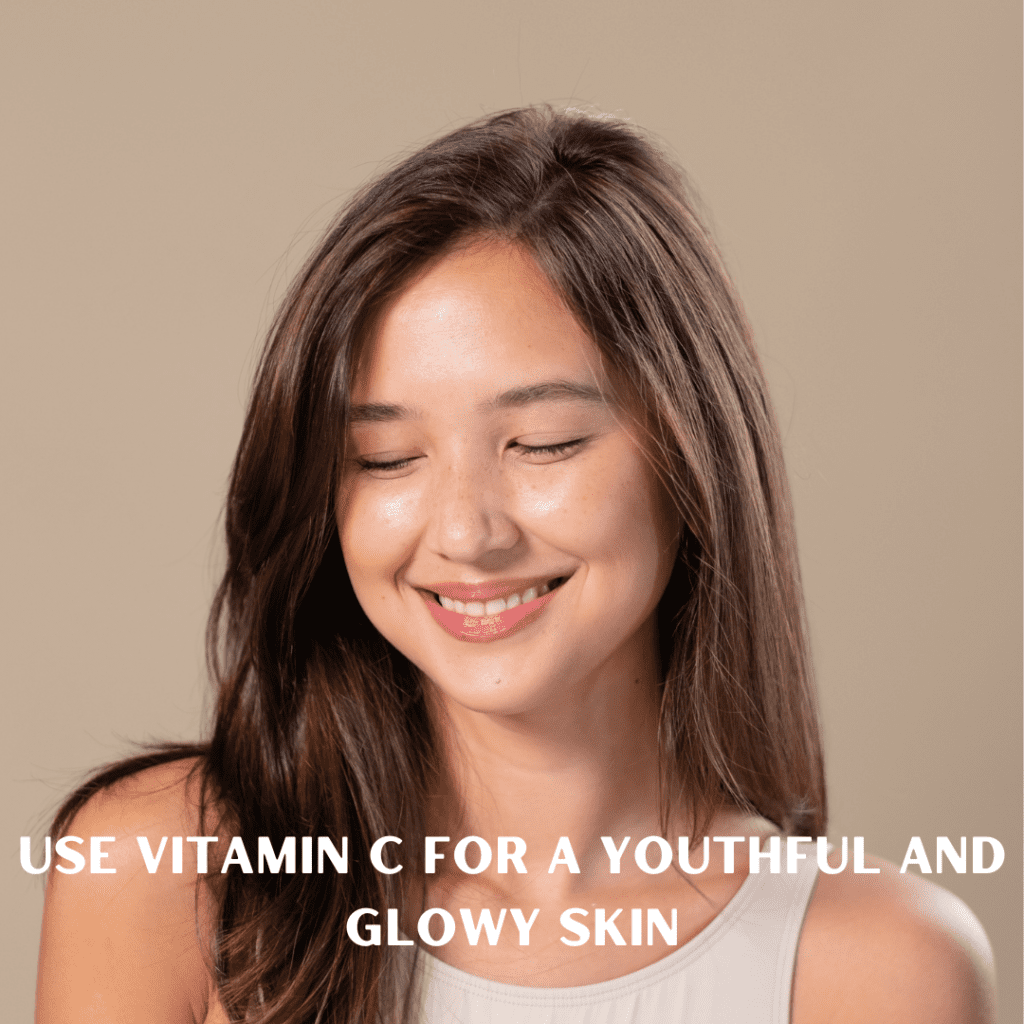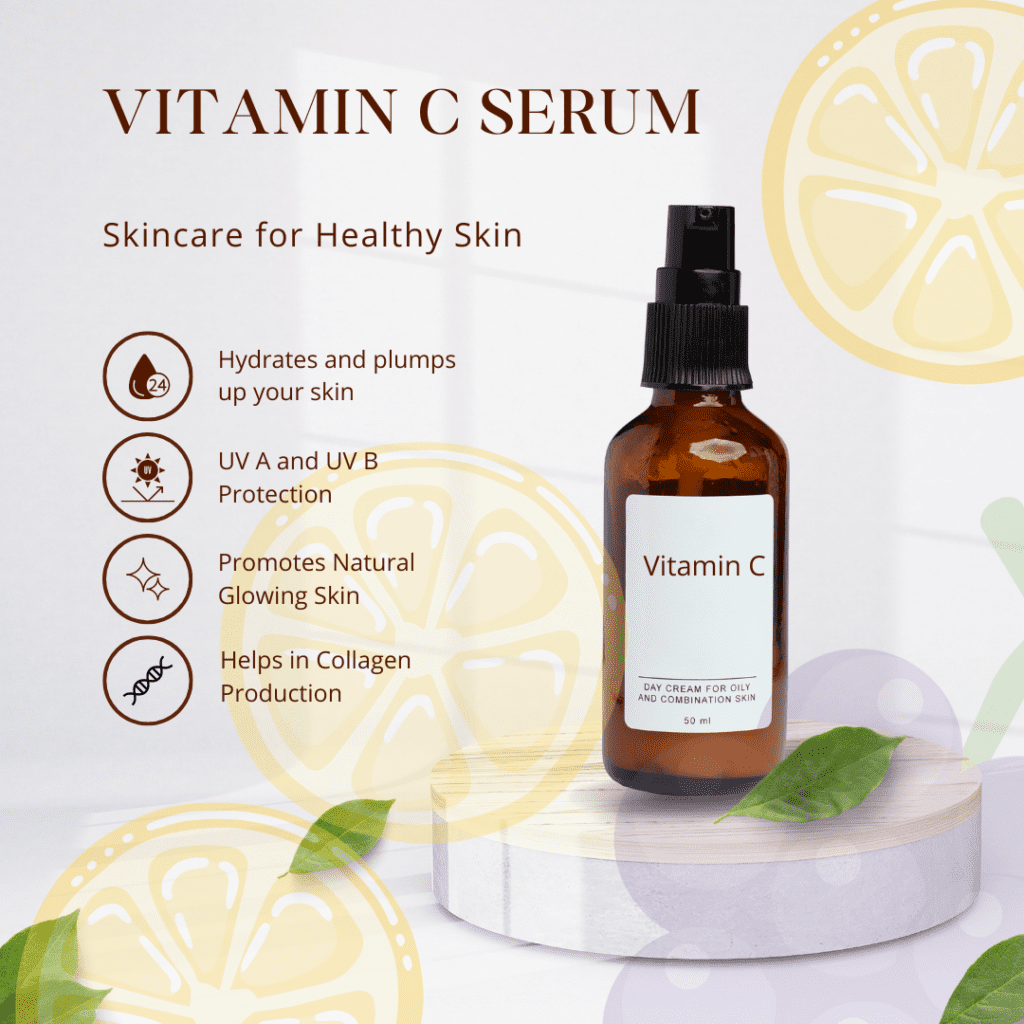Vitamin C serum has many health benefits for your skin, including promoting collagen production and protecting against sun damage.
The human skin is the largest organ in the body and the first line of defence against environmental stressors like air pollution. Unfortunately, a variety of pollutants constantly attack our skin. The range of pollution effects on the skin is quite broad. It may lead to dehydration, disruption of the skin microbiome, skin barrier damage, premature aging, and even skin cancer. Often, it can cause the worsening of existing skin conditions such as acne, contact dermatitis, eczema, and psoriasis.
Dermatologists advise topical vitamin C because it has scientific backing, can help prevent sun damage, slow down the aging process of the skin, and improve the appearance of wrinkles, dark spots, and acne. Vitamin C is an antioxidant, meaning it fights harmful free radicals (toxins) that come into contact with your skin from external sources like air pollution or from inside the body as a result of normal processes like your metabolism.
There are a few reasons why Vitamin C should be part of your daily skin-care routine
It helps fade hyper-pigmentation
Since it impedes melanin production, vitamin C can actually fade hyperpigmentation. Melanin excess in specific skin regions leads to hyperpigmentation, which includes melasma, sunspots, and age spots. It can also happen in areas where acne has healed.
Vitamin C inhibits melanin by down-regulating the activity of an enzyme known as tyrosinase. It’s widely used in dermatology for reducing the pigmentation of hyperpigmented spots on the skin.
It is very hydrating
According to research, most healthy skin and organs contain high concentrations of vitamin C, suggesting that vitamin C accumulates in the body through circulation. Topical vitamin C penetrates the skin best in the form of ascorbic acid. Magnesium ascorbyl phosphate, another vitamin C derivative used in skin care, has been shown to have a hydrating effect on the skin.
Vitamin C serums can help smooth out fine lines by plumping and hydrating the under-eye area. Although vitamin C is more effective at reducing overall redness, some people say it can help alleviate discoloration associated with under-eye circles.

It brightens up the skin
In order to lessen dullness, vitamin C can help lighten pigmentation and smooth the skin’s surface. As a result, the skin seems more youthful. Melanin synthesis has been demonstrated to be inhibited by vitamin C consumption. The pigment called melanin is what gives skin its color. By inhibiting the synthesis of melanin, vitamin C can help fade dark patches and hyperpigmentation. It might also contribute to the brightness of your skin.
It promotes collagen production
One naturally occurring protein that gradually disappears is collagen. Wrinkles and fine lines may result from low collagen levels. Via the process of collagen synthesis, vitamin C is well known for increasing the formation of collagen. In actuality, vitamin C is necessary for the creation of collagen.
This is due to the fact that vitamin C is a necessary cofactor for the two enzymes needed to synthesize collagen:
- prolyl hydroxylase, which stabilizes the collagen molecule
- lysyl hydroxylase, which provides structural strength
It protects against sun damage
Skin deficiency in vitamin C is linked to excessive exposure to oxidant stress from pollution or ultraviolet (UV) irradiation. Researchers are not clear if this is a cause or an effect, but more mature or photodamaged skin has lower vitamin C levels.
Sun damage is caused by molecules called free radicals. These are atoms with a missing electron. Free radicals search for other atoms from which they can “steal” an electron, and this can lead to significant damage to the skin. Antioxidants abound in vitamin C. By “giving” these free radicals an electron and making them harmless, antioxidants shield the healthy skin cells in our bodies.
It may help prevent skin sagging
Elasticity and hardness of the skin are related to collagen synthesis. Your skin may start to sag as your collagen levels start to decline. Using a vitamin C serum could increase the formation of collagen and tighten the skin overall.
This holds true for drooping brought on by severe weight loss, oxidative stress damage, or normal aging. This implies that it can aid in lessening the appearance of drooping skin, giving the appearance of firmer, more toned skin.
How to use a vitamin C serum
While topical vitamin C is generally well tolerated, adverse effects are possible with all skin care treatments. Patch tests are always a good approach to determining how likely you are to have an allergic reaction. Here’s how to do it:
- Choose a modest, easily covered-up region of skin, such as your forearm.
- After applying a tiny amount of product, give it a day.
- You can use it on your face if there are no negative effects.
- If you get redness, hives, or a rash, stop using the product.
Usually, vitamin C serum is applied once or twice daily. As a general guideline, follow these steps: wash, tone, use vitamin C serum, and finally moisturize. Make sure to use clean hands when applying skin care products.

Bottom Line
It is okay to use it with other active substances; however, if you use it with niacinamide-containing products, vitamin C may become less effective. Vitamin C can help your skin look amazing, mend imperfections, and lessen hyperpigmentation. Add it to your skin care regimen in a way that makes sense for you because consistency is essential for achieving the best results. Some feel that it works best as a night serum, while others apply it in the morning to benefit from its UV-protectant qualities. Some people use it twice a day.








0 Comments